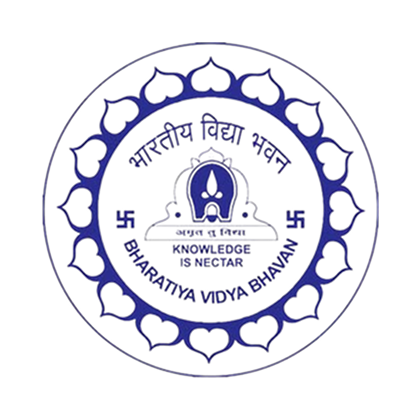
BHARATIYA VIDYA BHAVAN'S
M. M. College Of Arts, N. M. Institute Of Science, H. R. J. College Of Commerce
Bhavan’s College
(Autonomous 2020-30)
Established in 1946 | Re-accredited "A" Grade by NAAC | Munshi Nagar, Andheri (W), Mumbai - 400058
Year of Establishment: 1946
| CLASS | DSC | DSE | APPLIED COURSES |
|---|---|---|---|
| FYBSC | CALCULUS AND ANALYSIS, DISCRETE MATHEMATICS | ALGEBRA | |
| SYBSC | CALCULUS, LINEAR ALGEBRA, | GRAPH THEORY, PARTIAL DIFFERENTIAL EQUATIIONS, NUMERICAL METHODS | |
| TYBSC | MULTIVARIABLE CALCULUS, ABSTRACT ALGEBRA, TOPOLOGY OF METRIC SPACES , GRAPH THEORY, COMPLEX ANALYSIS | Pl SQL, JAVA PROGRAMMING, PYTHON PROGRAMMING | |
| FYBCOM | Mutual fund, shares, Derivatives | Linear programming problems, applications of Derivative |

Upcoming
| Sr. No. | Name of the teaching staff | Designation |
|---|---|---|
| 1 | Dr. (Mrs.)J.M. Nagarkar | ICT, Mumbai |
| 2 | Dr Atul Desai | Dyemech Pharma Ltd |
| 3 | Dr Kishore Niwalkar | Roha DyeChem |
| 4 | Dr. Tejas Vashi | Ajantha Pharma |
| 5 | Dr Murgavelli | IIT,Mubai |
For FYBSC Maths:
| PO | A student completing Bachelor’s Degree in Science will be able to: |
| PO | Develop sound concepts and principles of science. |
| PO | Grow on skills of inquisitiveness and find answers for many questions |
| PO | Develop good observatories assistances and thus can make a good career in the field of Research and development. |
| PO | Progress on Critical thinking, improve analytical power. Through Practical sessions grow on interpretation and documentation abilities. |
| PO | Through Self-study exercises Explore the developments on the national & International fronts. |
| PSO | A student completing Bachelor’s Degree Science with the subject of Mathematics will be able to |
| PSO-1 | Solve differential equations and understand its Applicability |
| PSO-2 | Understand the properties of real number system. |
| PSO-3 | Understand the limit and convergence of Sequences. |
| PSO-4 | Understands about set theoretic concepts like relations, functions, equivalence relation and partition |
| PSO-5 | Understand geometrical interpretation of complex numbers |
| PSO-6 | Understands concepts of infinite series, limits and continuity of R-R functions and use applications of differentiability in other branches of science |
| CO | COURSE OUTCOMES |
| 1. | Get knowledge of Solving differential equations. |
| 2. | Understand the properties of real number system. |
| 3. | Understand the limit and convergence of Sequences. |
| 4. | Learner becomes very clear about set theoretic concepts like relations, functions, equivalence relation, partitions, polynomials. |
| 5. | Learner will understand geometrical interpretation of complex numbers. |
| 6. | Learner becomes confident about concepts of infinite series, limits and continuity of R-R functions and use applications of differentiability in other branches of science. |
| 7. | Learner becomes very clear about above concepts and its utility. |
| 8. | Learners are motivated the nature based problems to be solved using System of linear equations. |
For SYBSC Maths:
| PO | A student completing Bachelor’s Degree in Science will be able to: |
| PO 2 | Obtain proficiency in analytical reasoning, critical understanding, analysis and synthesis in order to solve theoretical and practical problems. |
| PO 3 | Present complex information in a clear and concise manner to different groups. |
| PO 4 | work effectively and respectfully with diverse teams; facilitate cooperative or coordinated effort on the part of a group and act together as a group or a team in the interests of a common cause. |
| PO 5 | Enhance their employability for Government jobs, related to science, data analysis jobs, and jobs in various other public and private enterprises. |
| PO 6 | Ability to recognize cause and effect relationships, define problems, formulate hypotheses, interpret and draw conclusions from data, ability to plan, execute and report the results of an experiment or investigation which will enable them to apply one’s learning to real life situations |
| PSO | A student completing Bachelor’s Degree Science with the subject of Mathematics will be able to: |
| PSO-1 | Solve second order differential equations using UDC and Variation of parameters method and understands its applications. |
| PSO-2 | Test whether limit exist or not and able to find limit of sequences and sub sequences |
| PSO-3 | Recognise which algebraic structure is Vector space over IR and able to the find matrix associated with a linear transformation with respect to given bases, and understand the relationship between the operations on linear transformations |
| PSO-4 | To solve Mathematical problems using graph theory concept, Combinatorics concept. |
| PSO-5 | To solve partial differential equations and Numerical methods problem |
| PSO-6 | To solve problems on Riemann integral and improper integrals |
| CO | COURSE OUTCOMES |
| 1. | Learner Solves Second order differential equations using UDC and variation of parameters method |
| 2. | Learner Use properties of real numbers to solve problems |
| 3. | Learner confidently distinguishes convergence and divergence Sequence |
| 4. | Learner becomes very clear about concepts of vector spaces, linear transformations, inner product spaces and their applications to orthogonality. |
| 5. | Learner understands to find the matrix associated with a linear transformation with respect to given bases, and understand the relationship between the operations on linear transformations. |
| 6. | Learner becomes very clear about graphs types and properties. |
| 7. | Learners are motivated in solving graph theory problems. |
Upcoming